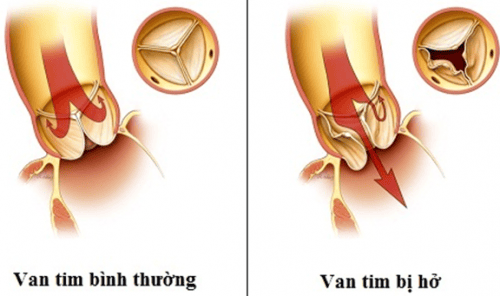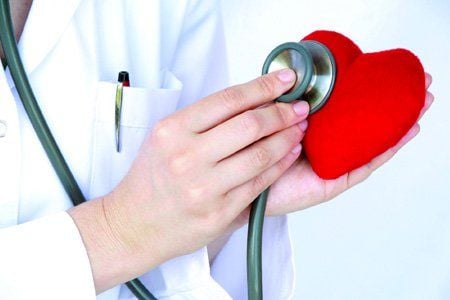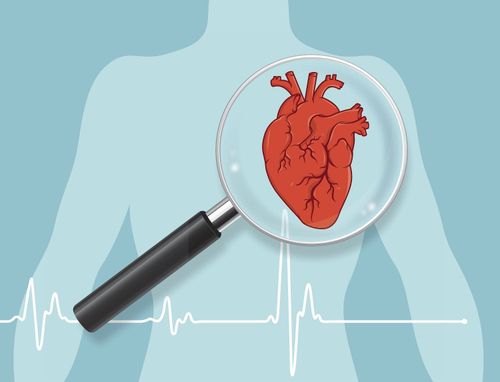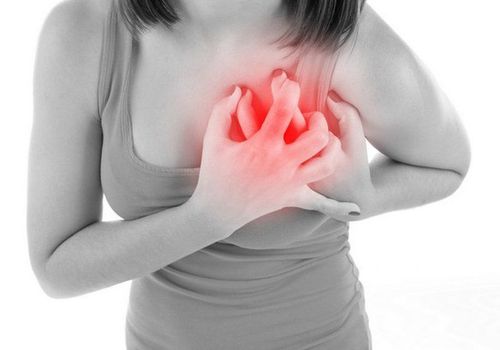This is an automatically translated article.
The article was professionally consulted by Dr. Nguyen Van Duong - Interventional Cardiologist - Cardiovascular Center - Vinmec Central Park International General Hospital. The doctor has many years of experience in the diagnosis and treatment of cardiovascular diseases.1. Learn about tricuspid valve disease 1/4
The structure of the heart consists of 4 chambers: 2 lower ventricles, 2 upper atria and are connected by heart valves. Heart valves regulate blood flow in and out of the heart and between the chambers. Valves can be thought of as faucets, opening and allowing blood to flow freely, or closing and stopping the flow altogether. The tricuspid valve is the valve between the right ventricle and the right atrium. Tricuspid regurgitation is a condition in which the tricuspid valve does not close properly during systole, causing blood not to go all the way down to the right ventricle, but back into the right atrium, causing the heart to increase contraction. Over time this condition can impair heart function. Clinically, based on echocardiography, tricuspid regurgitation is divided into 4 levels from mild to severe: 1/4, 2/4, 3/4, 4/4. In fact, it has been shown that 50-60% of patients have no symptoms of mild tricuspid regurgitation or 1/4 tricuspid regurgitation, about 15% have moderate tricuspid regurgitation.
2. Causes of tricuspid valve regurgitation
There are three main causes of tricuspid regurgitation:Right ventricular stenosis. It is a common cause of tricuspid regurgitation. The right ventricle is responsible for pumping blood from the heart to the lungs. When the right ventricle narrows, it is forced to work too hard, causing the right ventricle to dilate, long-term hypertrophy leads to tricuspid regurgitation. Infective endocarditis. Endocardial infection can directly damage the tricuspid valve, eventually leading to tricuspid regurgitation. Take weight loss pills. Diet pills containing phentermine and fenfluramine can lead to tricuspid regurgitation. Other causes include: thoracic trauma, lupus erythematosus, congenital Ebstein, rheumatoid arthritis...
Trắc nghiệm: Huyết áp của bạn có đang thực sự tốt?
Huyết áp cao hay thấp đều ảnh hưởng đến tình trạng sức khỏe con người. Để biết tình trạng huyết áp của bạn có thực sự tốt không, hãy làm bài trắc nghiệm sau đây để đánh giá.3. Is 3-cuspid valve regurgitation dangerous?
Tricuspid regurgitation 1/4 is the mildest degree of tricuspid regurgitation and about 70% of normal people have tricuspid regurgitation, so it is called physiological tricuspid regurgitation. If there are no symptoms of tricuspid regurgitation, the disease is not dangerous and does not need to be treated with drugs or surgical intervention.
4. What should I do if I have a 3-leaf 1/4 valve?
Change your lifestyle in a healthy way so that tricuspid regurgitation does not get worse. Measures include:Quit smoking, stimulants such as alcohol, coffee,...;

Please dial HOTLINE for more information or register for an appointment HERE. Download MyVinmec app to make appointments faster and to manage your bookings easily.
References: healthline.com , bestpractice.bmj.com













